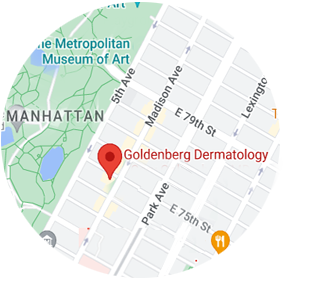What’s Your Skin Type?
Some people have skin that constantly begs for moisture, while others cannot seem to counteract excess oil. Genetics influence your basic skin type, but environmental factors also play a role. Moreover, skin changes over the course your lifetime. Understanding your skin type can help you make the right decisions when it comes to skin care.
Dry Skin
Dry skin is characterized by a lackluster complexion, fine lines and diminished resilience. If you have dry skin, you may see it worsen seasonally or notice a change when you are in certain climates. Winter weather can exacerbate dry skin, potentially causing rough patches, itching and scaling. A dry or windy environment can leave the skin feeling sapped of moisture. If left untreated, the skin can crack, leaving an exposed wound, susceptible to further damage and possible infection. Individuals with a history of eczema are more likely to struggle with dry skin. Age is also key: as the skin ages, it loses elasticity and its ability to replenish moisture.
Caring for dry skin: With dry skin, it is important to avoid oil-stripping products, such as harsh soaps or cleansers. Washing your face excessively or with overly hot water can rob your skin of moisture. If your skin is feeling tight, use a gentle moisturizing cleanser and avoid scrubbing your face. Use a daily moisturizer with SPF to help protect your face from the sun’s harmful rays in the morning. At night, use a heavier cream to sooth the skin. Make sure to bathe with a gentle, fragrance free wash. Detergents and fabric softeners should also be scent free.
Oily Skin
Small glands in the skin–called sebaceous glands– produce an oily substance that lubricates the skin (sebum). When the sebaceous glands secretes excess sebum, the result is oily skin. People with oily skin often have enlarged pores and a shiny complexion. Hormonal fluctuations, stress, and overuse of skin products can trigger the overproduction of sebum. Blackheads and other blemishes are often associated with oily skin.
Caring for oily skin: To keep your skin radiant, without the extra shine, gently cleanse your skin in the morning and night with a mild cleanser.Scrubs can help remove excess oil, but when overused, they can irritate the face, prompting the skin to produce more oil. Although it may seem counterintuitive to those with oily skin, it is important to apply a daily moisturizer, no matter what your skin types. Keep your skin moisturized with an oil-free lotion; it may not give a perfectly matte finish, but it will not contribute unwanted sheen. Prescription creams, such as retin-a, can also help with excess oil production. Certain laser procedures, such as fraxel dual and clear and brilliant laser can help decrease oiliness and reduce pore size.
Combination Skin
Like many people, your skin type may not fit perfectly into dry or oily categories. Combination skin describes skin that has dry or normal patches as well as oily areas. A common example of combination skin is dry-to-normal cheeks with an oily T-zone–named for the t-shape formed by the forehead, nose and chin.
Caring for combination skin: Wash your face with a gentle cleanser that is safe for all skin types. To even out your complexion, you can try tailoring your skin care routine to target different areas. For example, the dry areas may benefit from a more intense moisturizer, while the oily areas may be responsive to products that contain oil-neutralizing acids. Prescription creams, such as retin-a, can also help with excess oil production. Certain laser procedures, such as fraxel dual and clear and brilliant laser can help decrease oiliness and reduce pore size. This can particularly help with the oily areas of the skin.
Acne-Prone Skin
One of the most frustrating skin types is acne-prone skin. When pores become clogged with oil, dead skin and bacteria, pimples (acne) can form. Hormonal change, certain medications and stress are all factors that can contribute to flare ups. Acne can have a devastating effect on self-image and is one of the leading reasons people seek a dermatologist’s help.
Caring for acne prone skin: If you have a blemish, do not aggravate it. Cleanse your face using your hands and a cleanser that contains an acne-fighting agent, such as salicylic acid or benzoyl peroxide. Use moisturizers and other products that are labeled non-comedogenic–these specially formulated products will not clog pores. If you have recurring breakouts or cystic acne, it is best to consult a dermatologist. Because acne can lead to permanent scarring and skin damage, it is best get it under control as soon as possible.
No matter what your skin type, a healthy lifestyle will help keep your skin supple, even and clear. A nutrient-rich diet loaded with fresh fruits and vegetables can help keep the skin functioning optimally. Smoking and alcohol consumption can be dehydrating, depleting the skin’s reserves and inhibiting its ability to regenerate. Staying well-hydrated and eating properly will support the skin’s overall health and appearance–whether dry, oily, or blemish-prone.












Leave a Reply
Want to join the discussion?Feel free to contribute!